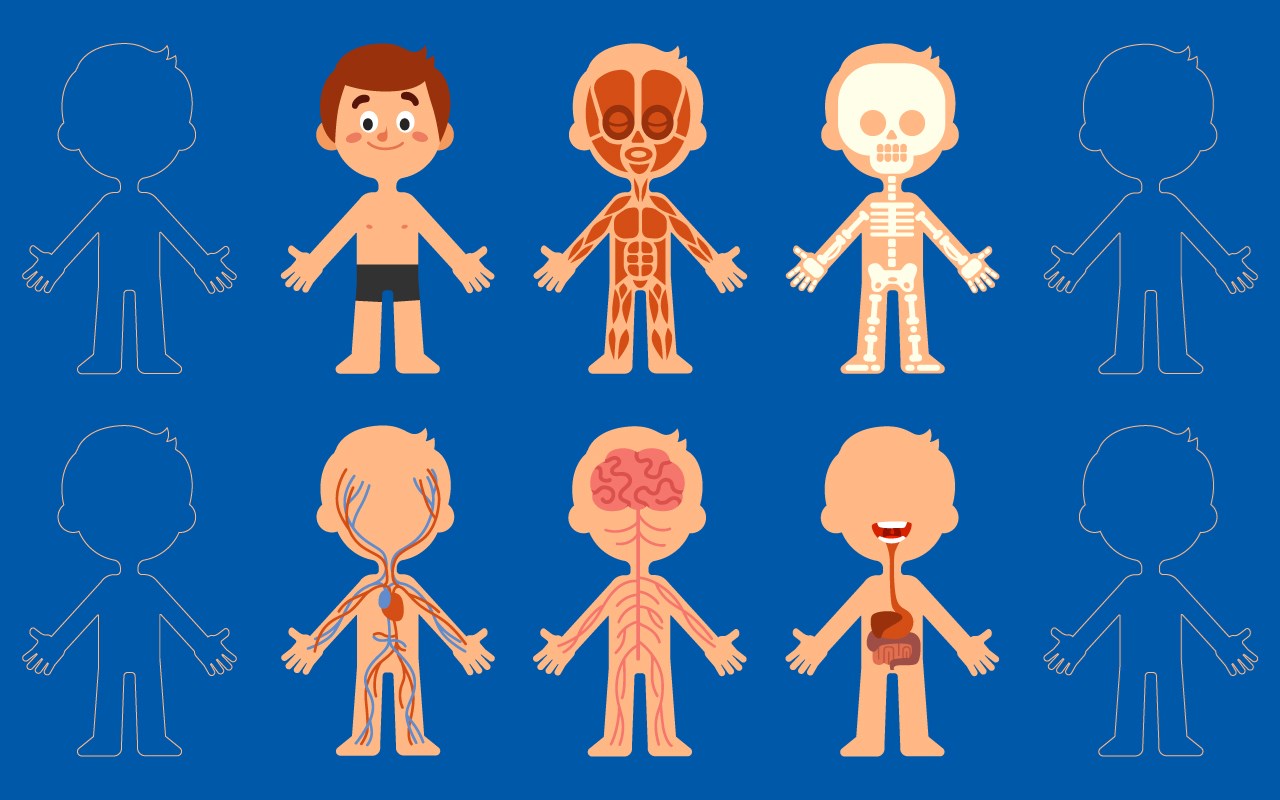stc
Human Body
Online science workshop | 4 workshop cycle | Ages: 10-13 years old (5th-6th grade Elementary, 1st grade Gymnasium)

Required, call 210 9469641, Monday to Friday, 9:30-16:30
7,5€ each workshop
90 minutes each workshop
Addressed exclusively at kids aged 10-13 years old (5th-6th grade Elementary, 1st grade Gymnasium)
Study of the human body organs and the human body systems!
How do the organs of the human body function? Why are they so different from each other? What does the word “system” mean when talking about the human body? How are the anatomical systems connected to each other? Can I make models that represent parts of the human body?
Ιn a series of 4 workshops, using simple materials, we will study the musculoskeletal system, the digestive system, the circulatory system, the respiratory system and the nervous system. Participants will do experiments and constructions and discover the functions of the human body!
Get the necessary materials, prepare your working space and let’s study the human body.
For the first workshop you will need:
- A glass beaker
- One cup of vinegar
- A chicken bone (left over from a meal)
- A paper egg case (free)
- A sponge with a hard shell (dishwasher sponge)
- Transparent scotch tape
- 1 pair of scissors
- 1 glue stick
- 4 pieces of cardboard with dimensions of 50 x 70 cm in blue color, 4 pieces of cardboard with dimensions of 50 x 70 cm in yellow color, which will be used to make a model of the human body.
- A pack of colored foam sheets (soft as fabric)
- A pack of colored pipe wires
- 6 tongue depressors
- 2 split pins
- 1 long narrow balloon
- 1 multipurpose plastic bag (soft plastic not durable and hard)
- 1 straw
- 1 disposable plastic glove
- The pdf files that we will send you via email when you buy the tickets for the workshop should be printed before the beginning of each session.
For the second workshop you will need:
- 2 transparent glasses (glass or plastic)
- 1 plastic cup
- A small basin
- 1 tablespoon
- A pair of scissors
- 1 glue stick
- 1 liquid glue
- A pair of disposable plastic gloves
- 2 resealable plastic bags
- 1 transparent pantyhose
- 1 paper roll of kitchen paper
- Cotton 100 grams (half pack)
- 10 rubber bands
- Pieces of wool in different colors
- 2 tablespoons of baking soda
- Half a cup of vinegar
- Half a cup of oil
- Half a cup of orange juice
- Half a cup of water
- ¼ cup liquid dish soap
- Half a banana
- 2 cookies or crackers
- The pdf files that we will send you via email when you buy the tickets for the workshop should be printed before the beginning of each session.
For the third workshop you will need:
- A 500ml plastic bottle (empty)
- A 1500ml plastic bottle (empty)
- 5 balloons
- 2 glass jars (of jam or honey) (permission)
- 2 pieces of play doh
- 2 ping pong balls
- 4 yellow beads
- Water pearls (decoration) in red
- Red pastry color
- 4 straws
- A toothpick
- A plastic rubber band
- A pair of scissors
- Scotch tape
- A small basin
- Dried yeast
- A tablespoon of sugar
- A cup of lukewarm water
- 2 cups of tap water
- The pdf files that we will send you via email when you buy the tickets for the workshop should be printed before the beginning of each session.
For the fourth workshop you will need:
- Plastic container (tupperware) in a rectangular shape with a size of approximately 20x10
- 3 small basins or large bowls
- 6 pieces of different colored play doh
- A flexible plastic thin tube (diameter 1 cm, length 1m)
- Tape
- A balloon
- A paper roll of kitchen paper
- 2 large pieces of thread (80cm)
- 2 pieces of cardboard
- A pencil
- A pair of scissors
- 6 buttons
- 2 plastic funnels
- A glass of water
- Cold water
- Hot water
- 2 raw eggs
- The pdf files that we will send you via email when you buy the tickets for the workshop should be printed before the beginning of each session.
Only one computer with internet connection is required to participate in the workshop.
Reservation is required at 210 9469641, Monday to Friday, 9:30-16:30, as well as completing the application form/formal declaration and sending it to logistics@eef.edu.gr.
After confirming the reservation, you will receive an email with the link and the relevant instructions for direct connection to the workshop. The workshops are conducted through the Microsoft Teams online platform.
Adult supervision is required.
stc


